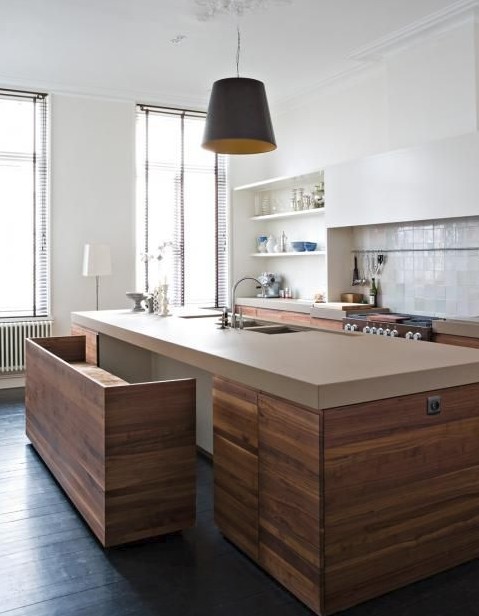So you've decided to remodel your kitchen and the looming question remains: sleek quartz or earthy granite countertops? While there are pros and cons to each, ultimately whatever you choose is bound to make your kitchen feel brand-new.
Quartz Overview
Cost: Quartz will cost $265-$395 per square meter and compose of about 90% crushed quartz mixed with about 10% resin (and sometimes acrylic).
Strength: Quartz is just as strong as granite. But is easier to work with during the installation process. Because it is more flexible. It's also much heavier than granite and will need to be professionally installed.
Maintenance: This countertop requires virtually no maintenance as it is non-porous and therefore doesn't need to be sealed. Though durable and stain-resistant, quartz is not indestructible and can discolor over time when exposed to direct sunlight.
Look: A potential drawback is that the seams in a quartz countertop are pretty visible. However, these are less prominent if you opt to buy yours in a solid or darker color.
Granite Overview
Cost: Granite will cost upwards of $240- $ 380 per square meter. And is made out of huge slabs of quarrie stone that is cut and polished into countertops.
Strength: Granite is extremely durable and able to bear the brunt of day-to-day activities with no fuss. It will also need to be professionally installed.
Maintenance: Granite is porous and will need to be seal to prevent staining. Resealing your countertops is recommend every one to three years.
Look: The appearance of granite is not uniform. Which can be either aesthetically pleasing or displeasing depending on your tastes. When ordering granite, be aware that samples can differ slightly in color or pattern from what you receive. Remember that granite is a stone cut straight from the earth. So there will, of course, be natural differences from samples you compare.
Air Quality and Environmental Impact
Quartz has more VOCs (volatile organic compounds) than granite does. But some granite contains very low levels of radon. Both are safe for indoor use.
Quartz also generally leaves less of a carbon footprint. It often contains recycle content and is manufactured in a more environmentally-friendly way. Whereas granite needs to be quarried and then shipped overseas to a manufacturing site.
If you want to install quartz in a more eco-friendly way. The company Cambria makes most of their products in the United States and recycles all the water they use during processing.
Price Comparison
Though both have relatively similar prices, granite will generally be just a bit pricier because of excavation and shipping costs. Thicker slabs of granite will cost more, but thinner ones will be weaker.

